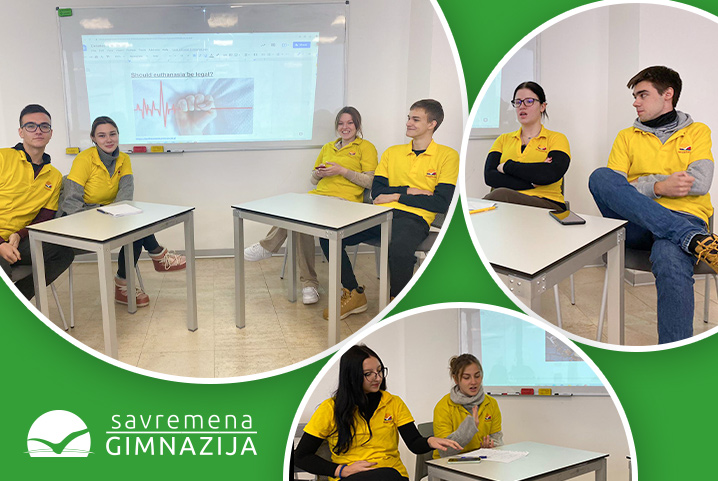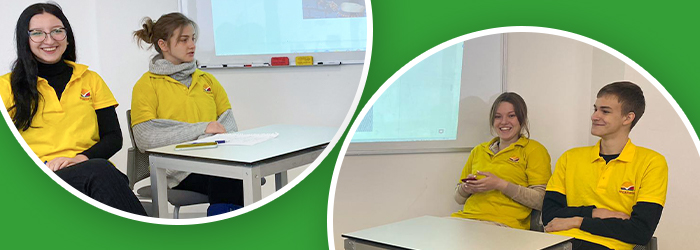
At the time when the communication skills are becoming more and more important in everyday life and work, however, at the same time we can witness that students generally care less and less about correct and polite communication and respect for other participants in conversation, our English teacher Milica Aleksić focused on the topic of debates, in English, of course, together with her Year 4 students of the Combined Programme.
Debating is an art, not a dispute!
The students familiarised with the structure of a debate, the importance of its preparation and the ways for presenting arguments, but above all how important it is to actively listen to another speaker, to respect other people’s opinions and to respond adequately to expressing of different opinion.
It is worth noting that while watching videos the students spotted the mistakes in debating, speaker’s manipulative approach, as well as improper and impolite verbal and non-verbal communication.
After the introductory lesson, the students were divided into pairs and given the debate tasks. What they hadn’t anticipated was that they were not allowed to choose the side to defend, but the sides pro and against were randomly distributed. One of the rationale behind it was to make topic preparation fair for all, while the other one was to make the students search deep the particular point of view and provide the arguments for the standpoint they perhaps may not personally approve of. Thus, the students are motivated to think critically on delicate topics, as well as to support their points duly and succinctly with relevant proofs.
Debates support development of critical thinking and communication skills
As a special outcome and result of dealing with this topic, the thing that should be stressed is developing students’ awareness on mutual respect during the communication and the exchange of opinions. Besides, the selection of topics was such that students’ motivation was induced as well as their desire to speak about them (Eutanasia should be legalised, Reality programmes should not be broadcast on television, Public figures are good role models for young people etc.)
School counsellor Ivan Davidović was present at the lesson. He pointed out that the students were focused on mutual interaction and exchange of arguments relevant to the subject, which leads to development of critical thinking in students and their communication skills. In this way, students can understand the purpose of the things they study, they are more motivated for activities and focused on reaching the set goal and defined outcomes. The students also develop cooperation among themselves but also in relation to their teacher.


















